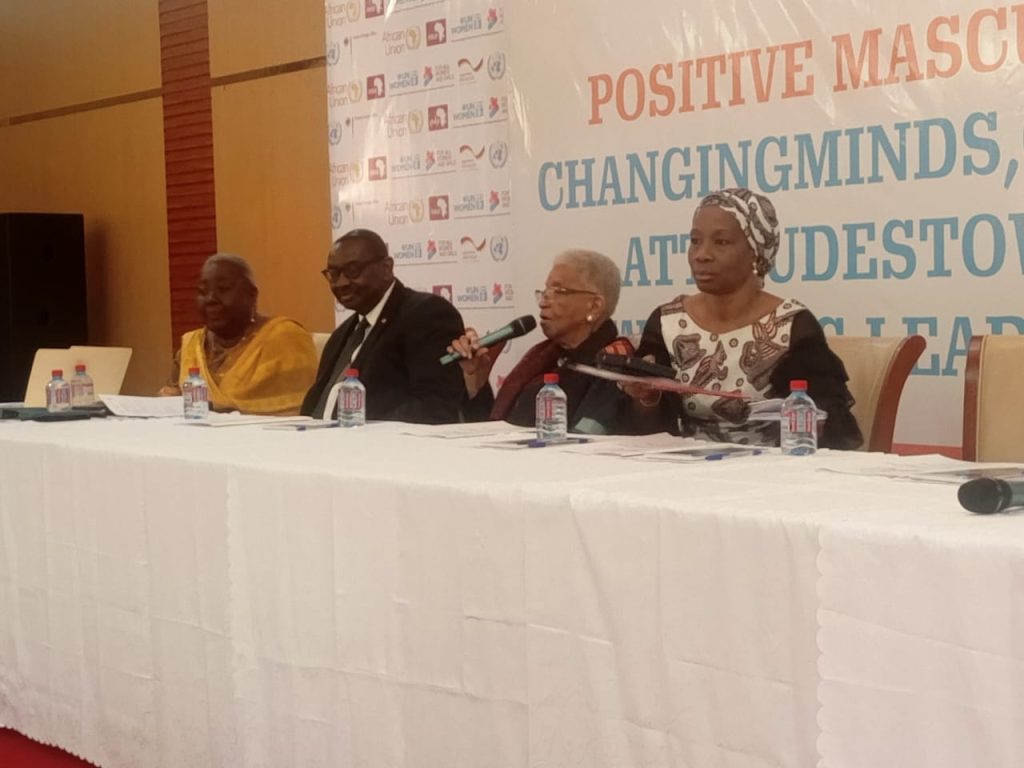Ellen Johnson Sirleaf, former President of Liberia, has issued a potent call to action for African governments to move beyond symbolic gestures and fully embrace the African Union Convention on Ending Violence Against Women and Girls (AU-CEVAWG). This convention, adopted in February 2025, represents a landmark achievement in the fight against gender-based violence on the continent, encompassing a broad spectrum of abuses, from physical and sexual assault to economic exploitation and digital harassment. However, Sirleaf emphasizes that the convention’s true power lies not in its existence on paper, but in its robust implementation through ratification, domestication into national law, and consistent enforcement. She warns that without these crucial steps, the promise of protection and justice for African women and girls will remain unfulfilled.
Sirleaf’s call for action is deeply rooted in her long-standing commitment to women’s rights and her firsthand experience witnessing the persistent challenges faced by women across Africa. Recalling her involvement in the 1995 Beijing Conference on Women and subsequent UN initiatives, she acknowledges the progress made while underscoring the enduring reality of inequality and violence. The AU-CEVAWG, building upon the foundation laid by the 2003 Maputo Protocol, offers a comprehensive framework to address these issues. Its binding obligations on prevention, access to justice, victim support, digital safety, and the promotion of positive masculinity represent a significant step forward. Sirleaf insists that these obligations must be translated into concrete actions by member states to achieve tangible results.
The former president also stresses the critical importance of challenging traditional perceptions of gender roles and promoting genuine leadership opportunities for women. She argues that women should ascend to positions of power based on merit and competence, not through tokenistic gestures. Using Liberia’s own experience as an example, having had only one female president, she cautions against superficial displays of equality and advocates for creating an environment where women can thrive and lead based on their qualifications and achievements. This requires a fundamental shift in societal attitudes, moving beyond symbolic representation to genuine empowerment.
Central to this transformative process is the engagement of men as allies in the fight for gender equality. Sirleaf highlights the strategic approach of the African Women Leaders Network (AWLN) in fostering dialogue and collaboration between male and female leaders. The network’s focus on establishing chapters across Africa to address issues of leadership, education, and protection underscores the importance of a continent-wide effort to dismantle patriarchal structures and promote positive masculinity. This involves challenging harmful stereotypes and encouraging men to actively participate in creating a more equitable and just society for all.
The AWLN Positive Masculinity Workshop held in Monrovia, where Sirleaf delivered her address, served as a platform for these critical discussions. A diverse panel of experts, including UN representatives, government officials, and civil society leaders, explored the complex relationship between masculinity, strength, and violence against women and girls. This dialogue is crucial in dismantling harmful societal norms that often equate masculinity with dominance and aggression. By promoting positive expressions of masculinity, the workshop aimed to foster a culture of respect, empathy, and shared responsibility in ending gender-based violence.
The workshop’s broad attendance, including cabinet members, diplomats, UN representatives, civil society organizations, AWLN members, and journalists, signifies the growing recognition of the urgency and importance of addressing this issue. The presence of such a diverse group of stakeholders reflects a collective commitment to working together to achieve meaningful change. Sirleaf’s powerful message, delivered at this significant gathering, serves as a rallying cry for all African nations to translate the promises of the AU-CEVAWG into concrete action, ensuring a safer and more equitable future for all women and girls across the continent. The work ahead requires not only legislative changes but also a fundamental shift in societal attitudes and behaviors, fostering a culture of respect and equality.














